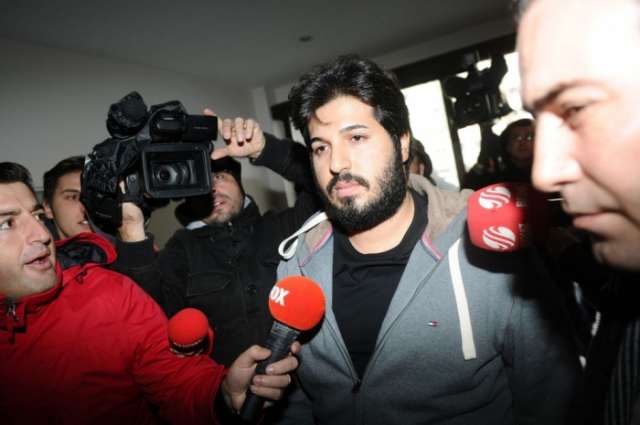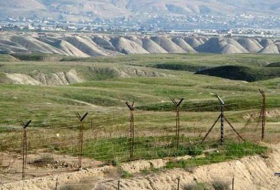"Atilla and his lies played a crucial role in giving Iran access to U.S. dollars and U.S. banks,” Assistant U.S. Attorney David William Denton Jr. told jurors at the start of the case. “Iran did not need soldiers. Iran needed a banker.”
The disclosure of Zarrab’s cooperation, minutes before the lawyers addressed jurors on Tuesday, roiled markets in Turkey, as the Lira fell as much as 1.7 percent and Halkbank shares dropped 7.9 percent. Yields on Turkish government 10-year lira bonds surged to records above 13 percent on Nov. 22 before retreating to 12.6 percent Tuesday.
The revelation ends weeks of mystery after the gold trader suddenly stopped participating in the defense. With the U.S. expected to present evidence of corruption at the highest reaches of the Turkish government, the case has sparked outrage from Turkish President Recep Tayyip Erdogan, who claims the prosecution is a plot to undermine his country’s economy.
Atilla and other plotters used elaborate transactions to “fool the U.S. government,” Denton said. They “covered up their lies with millions of dollars of bribes to the highest-level officials of the Turkish government” -- including, he said, the then-minister of Turkey’s economy. Court papers identify the minister as Mehmet Zafer Caglayan.
U.S. prosecutors made clear they intend to introduce evidence that was collected in a Turkish corruption investigation in 2013, but never used in trial there because the case was quashed by Erdogan’s administration. Bribes paid by Zarrab helped suppress the Turkish probe, Denton said.
The Turkish evidence "did not see the light of day," Denton told jurors. "Until now."
Prosecutors also plan to call as a witness a Turkish police officer who was involved in the investigation and subsequently jailed. He fled to the U.S.
Zarrab was arrested in the U.S. last year on charges that he helped bank executives and others in Turkey to help Iran disguise hundreds of millions of dollars in transactions that went through the U.S. financial system. Now, instead of standing trial, Zarrab will testify against Atilla, 47, and recount the alleged scheme.
Atilla is accused of fraud, sanctions violations and conspiracy to launder money. He is one of nine people to have been charged, including Caglayan and other senior Turkish government officials and bank executives, but only he and Zarrab have been in U.S. custody. The U.S. sanctions came as punishment for Iran’s effort to build a nuclear bomb earlier in the decade.
Atilla’s lawyer, Victor Rocco, told jurors his client was a hard-working civil servant caught up in a “swirling, huge international storm of intrigue, lies and massive corruption.”
“Atilla is just another one of Reza Zarrab’s many victims," Rocco said in his opening remarks. "A hapless and helpless pawn.”
Rocco also pointed the finger at Suleyman Aslan, the former general manager of Halkbank, who was also charged by the U.S.
"There’s no evidence that Hakan Atilla was ever bribed," Rocco said. "Not a scintilla, unlike his boss, who was paid millions of dollars in bribes."
Rocco assailed Zarrab, saying he has won a “get-out-of-jail-free card” by falsely implicating Atilla. He claimed that Zarrab bribed guards and other prisoners while in a U.S. jail to get access to liquor, drugs and women. It was Zarrab, and not Atilla, who made hundreds of millions of dollars waging an "economic holy war" against U.S. sanctions, using the money to buy "jets and yachts and people," he said.
Turkish-Iranian’s Unsealed Plea Sets Up His Dramatic Testimony
The prosecution of Zarrab and Atilla grew out of a counter-intelligence investigation started by the Federal Bureau of Investigation in 2013, in addition to the Turkish probe, Denton said.
The first witness to testify was FBI Special Agent James Atwater, followed by Lisa Palluconi, a U.S. Treasury Department official. The first day of testimony Tuesday ended with an expert on Iran, and prosecutors said they planned to call Zarrab on Wednesday. He may spend the remainder of the week on the stand.
Court records unsealed Tuesday show Zarrab pleaded guilty on Oct. 26 to all six original charges against him including conspiracy, sanctions violations, bank fraud and money laundering. He also pleaded guilty to an additional count of bribery and possession of contraband in a U.S. detention center, stemming from his plot to pay corrections officers to smuggle mobile phones and alcohol into the jail where he was being held.
Before the trial began, defense lawyers sought a brief postponement, complaining that prosecutors had just turned over 10,000 documents, many in Turkish, that they had not had time to review. U.S. District Judge Richard Berman denied the request.
Since his arrest in Florida in March 2016, Zarrab had been held in grim New York City jails before he was suddenly released. Two people familiar with the case said Zarrab has remained in U.S. custody but not in the federal jails.
More about: #Reza-Zarrab #Turkey #Iran















































